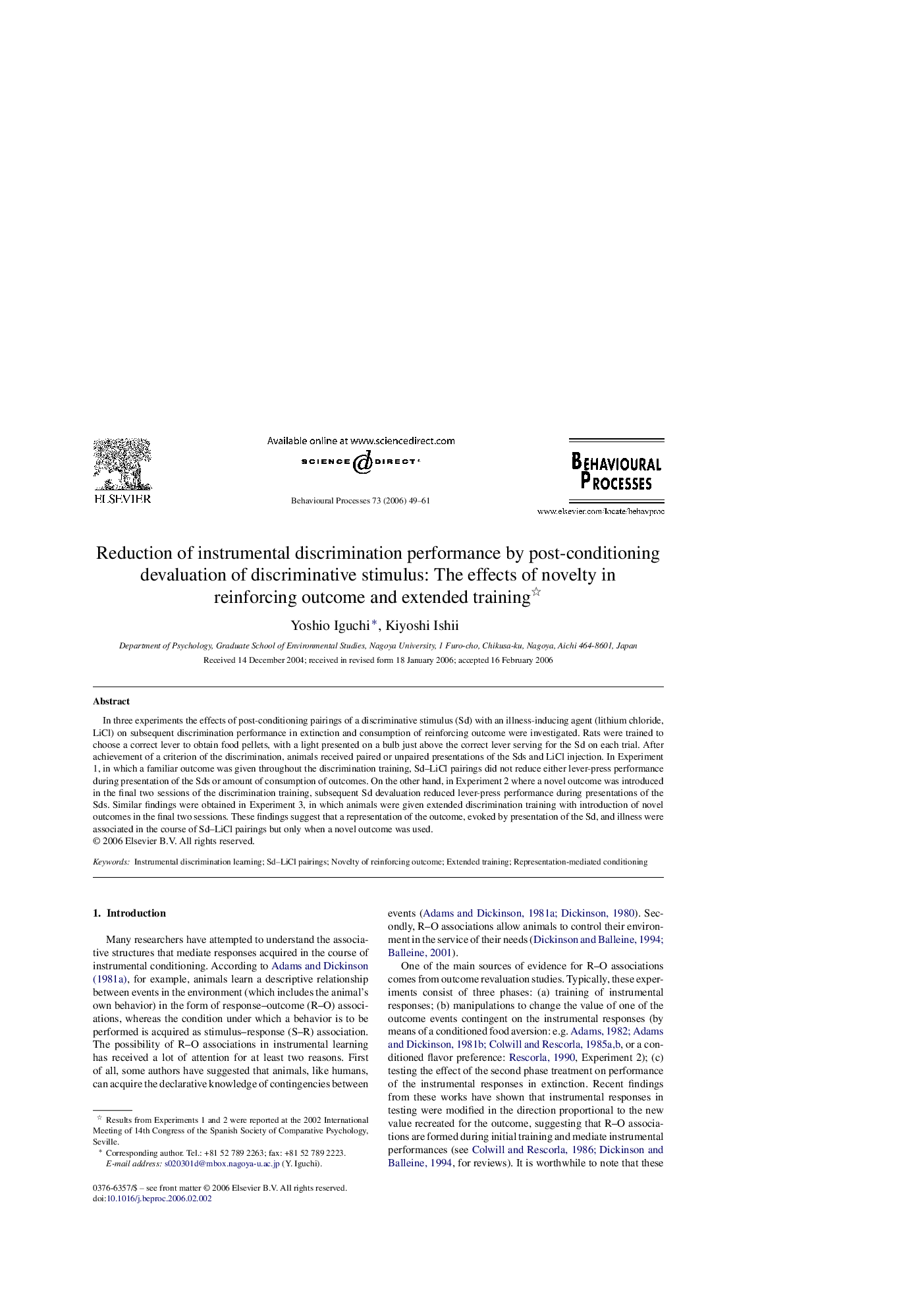| Article ID | Journal | Published Year | Pages | File Type |
|---|---|---|---|---|
| 2427814 | Behavioural Processes | 2006 | 13 Pages |
Abstract
In three experiments the effects of post-conditioning pairings of a discriminative stimulus (Sd) with an illness-inducing agent (lithium chloride, LiCl) on subsequent discrimination performance in extinction and consumption of reinforcing outcome were investigated. Rats were trained to choose a correct lever to obtain food pellets, with a light presented on a bulb just above the correct lever serving for the Sd on each trial. After achievement of a criterion of the discrimination, animals received paired or unpaired presentations of the Sds and LiCl injection. In Experiment 1, in which a familiar outcome was given throughout the discrimination training, Sd-LiCl pairings did not reduce either lever-press performance during presentation of the Sds or amount of consumption of outcomes. On the other hand, in Experiment 2 where a novel outcome was introduced in the final two sessions of the discrimination training, subsequent Sd devaluation reduced lever-press performance during presentations of the Sds. Similar findings were obtained in Experiment 3, in which animals were given extended discrimination training with introduction of novel outcomes in the final two sessions. These findings suggest that a representation of the outcome, evoked by presentation of the Sd, and illness were associated in the course of Sd-LiCl pairings but only when a novel outcome was used.
Related Topics
Life Sciences
Agricultural and Biological Sciences
Animal Science and Zoology
Authors
Yoshio Iguchi, Kiyoshi Ishii,
